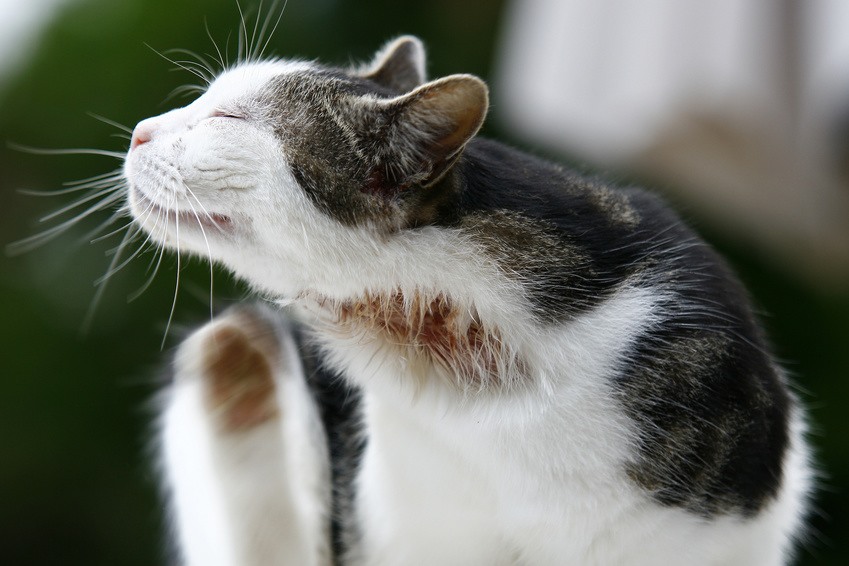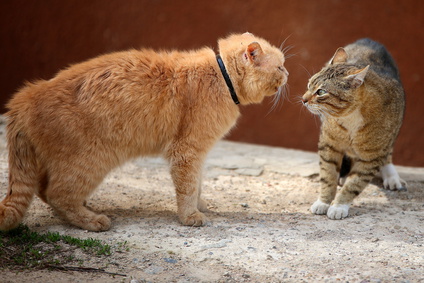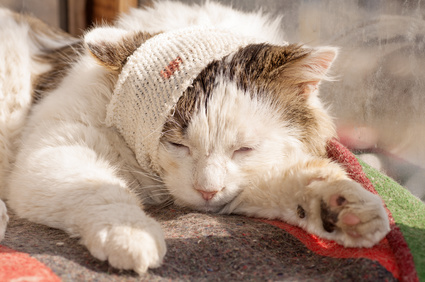
Spring is a wonderful time of year but it’s also when cats often become more active in the evenings and this can lead to trouble!
A bscess can be a result of trauma or foreign bodies such as grass seed or splinters but very commonly abscesses develop in cats following a puncture wound after fighting. The teeth or claws of one cat can penetrate the skin of another cat and introduce bacteria under the skin. Not every wound develops an abscess and the body can often fight off infection itself. The body is able to wall off the infection with a membrane to prevent the infection from spreading. Pus, an accumulation of fluid, toxins, white blood cells dead tissue and bacteria, builds up in the abscess. As an abscess grows the overlying skin thins out and weakens eventually allowing the abscess to rupture and the pus to drain out.


Symptoms of an abscess include
- Hot, swollen and painful area, possibly with hairloss
- Fever
- Inappetance
- Lethargy
- Limping
An abscess is not always visible or may seem to appear overnight, even if it has been developing for a few days. If your cat shows any of the above symptoms it is best to have them examine by a vet. They may become very ill if a severe abscess develops and is left untreated.
I f an abscess has not ruptured it may need to be treated by your vet. Treatment most likely will involve clipping and cleaning the area and opening the abscess to drain. A surgical drain may be required to be left in to maintain drainage of the site. Antibiotics will help to reduce infection in the skin and reduce chance of the abscess worsening. Some pain relief may also be required.
If you know your cat has been fighting you should keep an eye out for any signs of swelling or hair loss. If a puncture mark or scab is found the area should be monitored for any pain. If your cat seems unwell or the area is sensitive cleaning the area or a course of antibiotics may be able to prevent a nasty abscess forming.
The best way to prevent abscesses in your cat is to ensure they are desexed and keep them inside at dusk and dawn (and overnight) as this is when most cat fights occur. It is through fighting that feline leukaemia and feline AIDS are spread so it is vital to try to prevent fighting.
